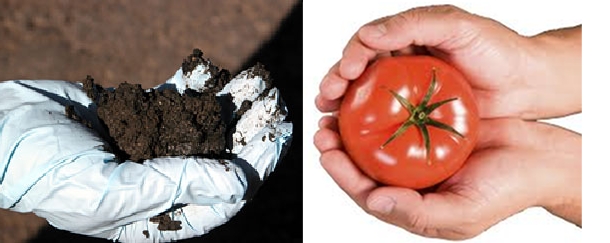Raw Milk Supporters Rally in Baraboo, Wisconsin for Farmer Vernon Hershberger's Criminal Trial
Farmer Vernon Hershberger's trial started May 20 in Baraboo, Wisconsin, and will most likely continue until May 24 at the earliest.

Farmer Vernon Hershberger's trial started May 20 in Baraboo, Wisconsin, and will most likely continue until May 24 at the earliest.
 Monsanto just announced a deal with DSM Nutritional Products to sell a new type of genetically engineered (GE) soybean: one with supposed nutritional benefits.
Monsanto just announced a deal with DSM Nutritional Products to sell a new type of genetically engineered (GE) soybean: one with supposed nutritional benefits.
 In an advance that makes history, Vermont's House of Representatives passed a bill on May 10 requiring foods containing genetically modified organisms (GMOs) to be labeled. This is the furthest any such legislation has made it through the legislative process in the United States.
In an advance that makes history, Vermont's House of Representatives passed a bill on May 10 requiring foods containing genetically modified organisms (GMOs) to be labeled. This is the furthest any such legislation has made it through the legislative process in the United States.
Republican Tennessee Governor Bill Haslam has vetoed a controversial "ag gag" bill that would hamstring citizen investigations documenting patterns of abuse of animals and regulatory violations.

Beautiful spring weather has gardeners outside seeding lettuce and transplanting tomatoes. Community gardens are ramping up for a growing season full of hot peppers and trailing squash vines. The sewage sludge "composting" industry wants in on the action. May 6 to May 12 has been declared "International Compost Awareness Week" by the sewage sludge industry trade group the U.S. Composting Council (USCC).
Wisconsin ranks 44th in the nation for new job creation. Rather than rolling up their sleeves and finding new and innovative ways to help create jobs, the Wisconsin legislature is spending its time telling people needing food assistance what they should be eating. AB 110, which will be up for a vote in the Assembly on Tuesday, May 7, is geared toward limiting "the amount of food stamp benefits that could be spent on junk food." But some of the fine print of the bill, bizarrely, would ban people from choosing more healthy and less expensive options for their families. The bill is one of many being considered that are unduly punitive of the poor.
Bee populations have been declining rapidly worldwide in recent years -- in the U.S., they have declined by almost 50 percent just since October 2012, according to The Ecologist. The problem is complex, with possible culprits including certain parasites (like Varroa mites), viruses, pesticides, and industrial agriculture. But two studies published in early 2012 in the journal Science suggested a particularly strong connection between the use of a class of pesticides called neonicotinoids and the decline of both bumble bee and honeybee populations.
 A spokesperson for Darden Restaurants, which operates Red Lobster, Olive Garden, and other chain restaurants, contacted the Center for Media and Democracy (CMD) to ask that a recent article be corrected to reflect that the company has dropped its membership in American Legislative Exchange Council (ALEC).
A spokesperson for Darden Restaurants, which operates Red Lobster, Olive Garden, and other chain restaurants, contacted the Center for Media and Democracy (CMD) to ask that a recent article be corrected to reflect that the company has dropped its membership in American Legislative Exchange Council (ALEC).
Have you ever wondered what labels like "humanely raised" and "cage free" mean when you're looking at a package of meat or eggs at the supermarket? Do corporations actually live up to the claims on the labels?
 Some day soon, you might tuck into a plate of salmon without knowing that the fish you are eating was genetically engineered. The so-called AquAdvantage salmon, a salmon genetically engineered to grow faster than normal salmon, just moved one step closer to legalization. If so, it will be the first genetically engineered (GE) animal allowed for consumption in the United States. Thus, every part of the regulatory process related to the GE salmon sets a precedent for all future GE animals in the United States -- and so far, according to experts, that precedent is a sloppy, inadequate one.
Some day soon, you might tuck into a plate of salmon without knowing that the fish you are eating was genetically engineered. The so-called AquAdvantage salmon, a salmon genetically engineered to grow faster than normal salmon, just moved one step closer to legalization. If so, it will be the first genetically engineered (GE) animal allowed for consumption in the United States. Thus, every part of the regulatory process related to the GE salmon sets a precedent for all future GE animals in the United States -- and so far, according to experts, that precedent is a sloppy, inadequate one.
Center for Media and Democracy (CMD)
520 University Ave, Ste 305 • Madison, WI 53703 • (608) 260-9713
CMD is a 501(c)(3) tax-exempt non-profit.
© 1993-2024